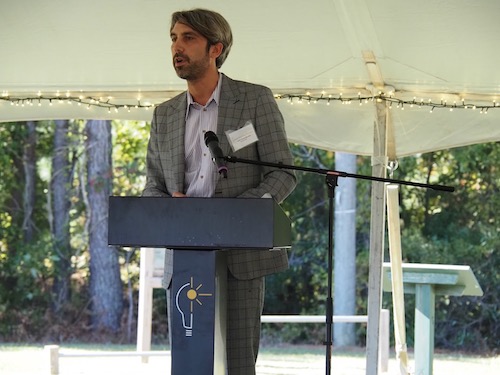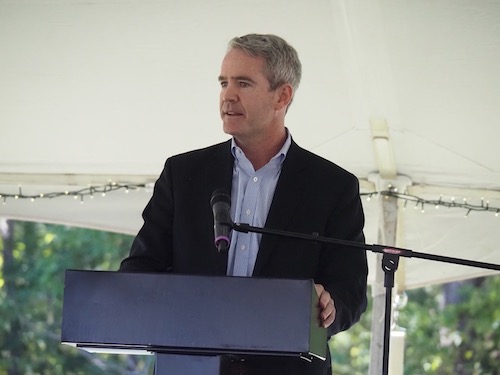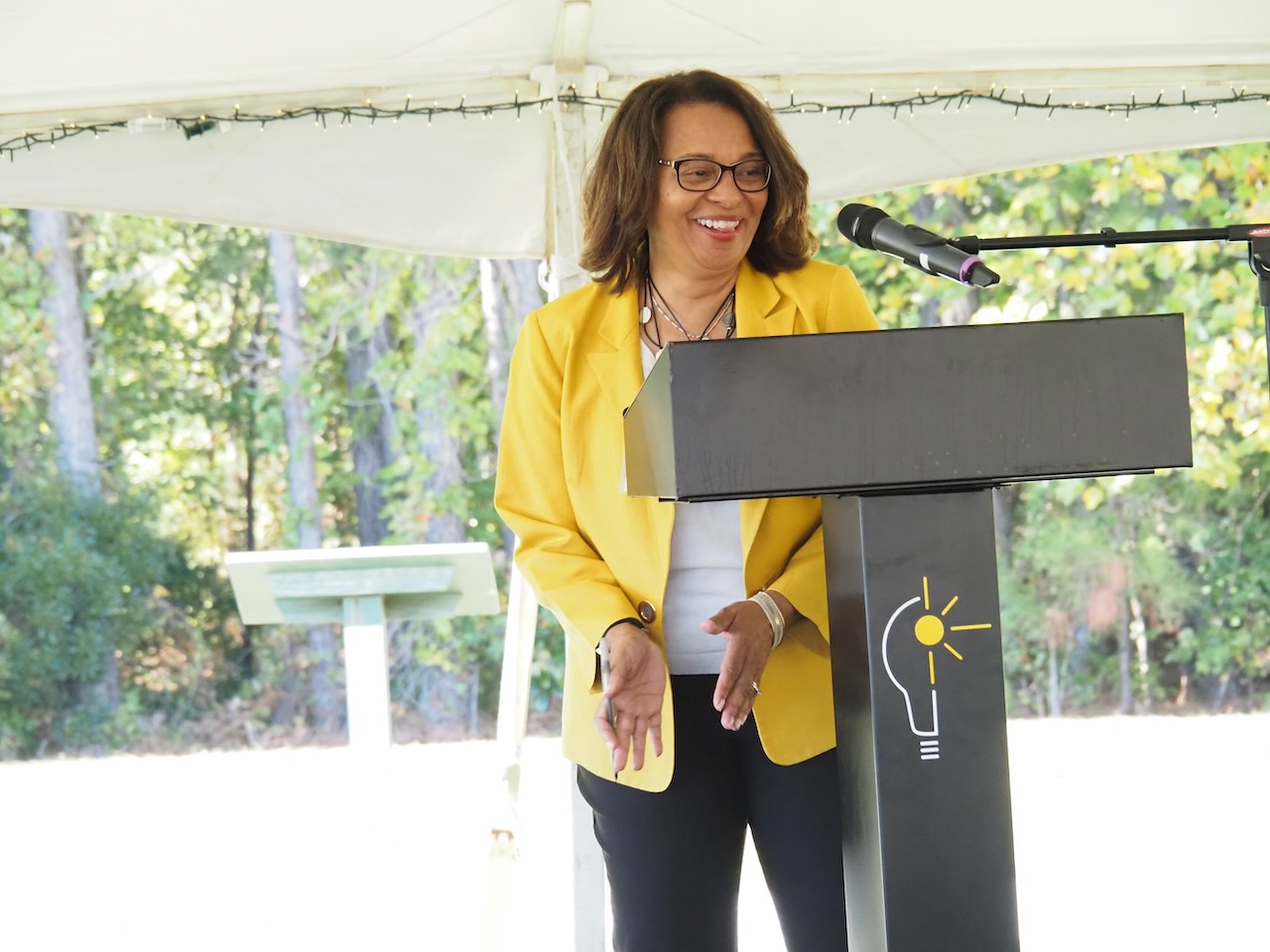The Center for Energy Education is on the frontlines of educating and training the public in a field that like the facility itself continues to grow — renewable energy.
“We have been around since 2015,” said the center’s executive director, Mozine Lowe, at Thursday’s SolarFEST. “North Carolina is our home base. This is where we started. Thanks to Halifax County for making it possible.”
Over the years the center has managed to grow with offices in Indiana, Ohio and Kentucky and a work presence in Virginia and Mississippi.
Most of that work is in rural communities, she said. “We like to work with the county leaders as a way for them to understand that the solar industry is coming, the renewable industry is coming, there’s a clean economy that is coming our way.”
Much of the work done at the center, which is located at the former Halifax County Airport, is aligned with North Carolina Governor Roy Cooper and his executive orders which attempt to move the state towards a clean economy and equity opportunities for all, Lowe said.
“As we lean forward towards a clean energy environment it is important that everyone has a chance to participate, to benefit and to enjoy.”
Lowe said SolarFEST is designed to celebrate those accomplishments. “All of us here today — all of us here are working towards a common goal. We realize there are challenges. Not everyone is enjoying the benefits at this point. It’s up to us to do whatever we can to make sure that everyone in every community, including rural communities, has a chance to participate.”
Since its inception, the center has been recognized in Washington for its work in rural communities and how its team rolls out its programs. “I talked about our work with the schools, our workforce training, our work with county leaders.”
What grabbed their attention, however, was 10 girls who are known as the Radiant Rays — the inaugural group of students in the center’s Empowering Young Women in Solar internship program. “We wanted these young women to have a different kind of experience. We wanted them to spend some time learning about clean energy,” Lowe said.

Georg Veit, chairman of Geenex Solar, said the accomplishments of the center thus far couldn’t have been done without the support of Halifax County leadership.
When Veit first came to Halifax County, solar wasn’t known back then, he said. “Halifax County saw an opportunity and we saw a county with open arms really from the heart and also ready for a new opportunity.”
Starting the center wasn’t easy, he said. “Some of the partners in the center backed away. I was told putting the center so far from the highway was an absolute mistake, no one would show up. Now we have a place in the community, a place of history. It’s just so good to have a place where the community can come together.”
Veit said the center also helps the community understand what the company does. “Every industry needs to be understood to be successful. Not only do we need to be understood, we need to provide opportunities to participate in what we do. The Center for Energy Education does exactly that. We inform the people but we also provide opportunities to get construction classes.”
Veit said there are plenty of solar companies that are waiting to hire people locally. “We all want to hire locally but sometimes it’s hard to find the right people so these training opportunities are really great.”
In 2016 the center began teaching teachers so they in turn could teach their students about solar. “We have seven years of solar education in Halifax County. I think that’s one of our best programs that we carry out. Our leaders need to understand why solar is happening.”
In 2018 the center trained 100 people in its construction class. “Wherever Geenex goes with our industry partners we carry the center along and provide those services to other communities. The programs we’re deriving from the work here are now being done in Kentucky, Ohio, Indiana, Virginia.”
The center, like the company, is part of the global shift to renewable energy, he said. “All of this contributes to the shift — the shift that the world needs. Everywhere in the world, the effects of climate change are paramount. There’s severe droughts in Europe, some like we haven’t seen before. In Germany we didn’t have wildfires — now we have them every year.”
Veit said what makes the center “so cool” is that industry and community have been combined with art and performance. “The interns, the Radiant Rays, are a big example of what can happen if you can give something to the young people. Without fighting climate change there will not be social justice.”

Patrick Fox, a partner with New Energy Capital, is originally from rural New Hampshire. “I am part of a statistic that I hope reverses. Many of my generation who grew up in rural communities didn’t see an opportunity to stay in those communities and we fled. I applaud all the people here in Halifax and other parts of North Carolina who are working hard to give opportunities to the next generation and I think clean energy is a great place to do that.”
New Energy Capital made its first investment in solar in North Carolina in 2011.
Since then North Carolina has taken a lead position in the industry. “Since that time we have probably put about $250 million in investment into North Carolina companies and projects. We’re very proud to see the results of that in the clean energy investment. We’re also proud to see that these small communities, rural communities, are taking part in that, and are seeing some benefits.”
The solar and renewable energy issue is not about politics, he said. “What’s really driving solar is economics. We have more solar developed in the last five years than we have anytime in our history. That spans, in terms of the presidency, two different political parties. So it’s not a political issue, it's an economic issue. Take part in it, get educated, make it serve your communities in the best way possible.”








